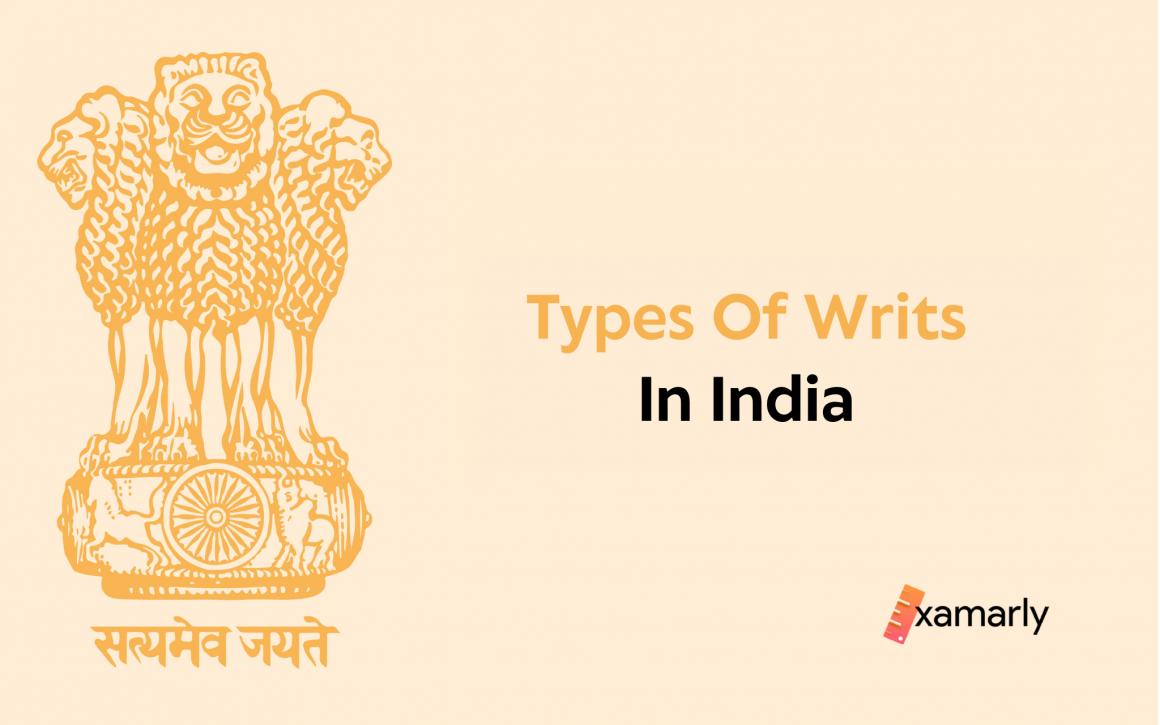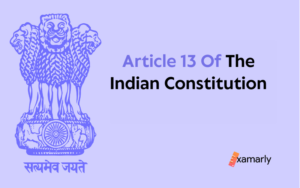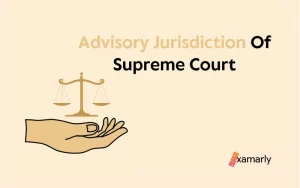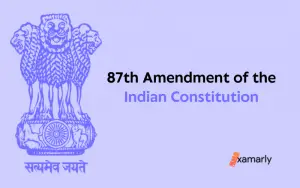A writ is a formal written order that is given by a court with judicial or administrative authority under common law.
In this article, we’ll explore in-depth about the different types of writs in India.
- What Is A Writ In India?
- What Does Article 32 Of The Indian Constitution Say?
- What Does Article 226 Of The Indian Constitution Say?
- What Are The Different Types Of Writs In India?
- Types Of Writs In India – Authority Of The Supreme Court
- Types Of Writs In India – Authority Of The High Court
- Types Of Writs In India – Significant Judgements
- Summary
- FAQs Around Types Of Writs In India
What Is A Writ In India?
In India, a writ is a formal order issued by a court or other judicial body.
It is used as a means of redress for an individual or group whose legal rights have been violated.
There are several types of writs in India that can be issued.
The different types of writs in India can be issued by both the High Court & the Supreme Court throughout the territories of their jurisdiction.
The official order may take the form of a warrant, instruction, command, or other documents.
Article 32 of the Indian Constitution authorises the Supreme Court to issue all types of writs in India throughout the Indian territory.
And from Article 226 of the Indian Constitution, the High Courts of India also have the authority to grant all the types of writs in India.
What Does Article 32 Of The Indian Constitution Say?
According to Article 32 of the Indian Constitution, people have the right to appeal the Supreme Court for justice if they believe their rights have been “unduly deprived.”
Given that it is regarded as “the custodian and guarantor of Fundamental Rights,” the Supreme Court is given the power to issue instructions or orders for the implementation of any of the rights guaranteed by the Constitution.
What Does Article 226 Of The Indian Constitution Say?
Article 226 of the Indian Constitution talks about the authority that the courts have to issue orders, and all the types of writs in India to the government or any individual for the purpose of securing rights, among others.
It empowers the High Courts to issue certain types of writs in India.
A High Court may also issue directions, orders or writs to any Government, authority or person.
What Are The Different Types Of Writs In India?
In India, there are five main types of writs in India that can be issued by a court or judicial body:
- Habeas Corpus: The first type of writ in India is used to secure the release of a person who is being unlawfully detained or imprisoned. It is a fundamental right of an individual and is used as a means of protection against arbitrary arrest or detention.
- Mandamus: The second type of writ in India is used to compel a public authority to perform a public duty that it is legally obligated to perform. It is often used to force government officials or agencies to take action or make a decision in a particular case.
- Certiorari: The third type of writ in India is used to quash an order or decision made by an inferior court or tribunal. It is often used to challenge a decision that is illegal, arbitrary, or in violation of natural justice.
- Quo Warranto: The fourth type of writ in India is used to challenge the legality of a person holding a public office. It is used to question the authority of a person claiming to hold public office and to ensure that only those who are legally entitled to hold such office are allowed to do so.
- Prohibition: The fifth type of writ in India is used to prohibit a lower court or tribunal from proceeding with a case that is beyond its jurisdiction. It can be used to prevent a lower court from taking action that would be in violation of a higher court’s jurisdiction.
These types of writs in India are remedies that are provided under the Constitution of India to protect the fundamental rights of citizens against violation by the State or its instrumentalities.
Types Of Writs In India – Authority Of The Supreme Court
The Supreme Court of India has the authority to issue all the types of writs in India under Article 32 of the Indian Constitution.
This article guarantees the right to constitutional remedies and grants the Supreme Court the power to issue the various types of writs in India for the enforcement of the fundamental rights of citizens.
The writ jurisdiction of the Supreme Court is not limited by any other provision in the Constitution, which means that the Court has the power to issue all the types of writs in India for the protection of individual rights.
The Supreme Court can issue writs of habeas corpus, mandamus, certiorari, quo warranto, and prohibition to any person, authority, or government within the territory of India.
These writs can be issued in both civil and criminal cases and can be used to challenge the actions of both public and private individuals and entities.
The Supreme Court also has the power to issue writs in the nature of habeas corpus, mandamus, certiorari, quo warranto and prohibition, to any person or authority, including in appropriate cases any government, within the territory of India.
In addition to its writ jurisdiction, the Supreme Court also has the power to hear appeals from decisions of the High Courts and other lower courts, as well as to hear cases involving disputes between states or between the central government and a state government.
This broad range of powers gives the Supreme Court a central role in protecting the rights of citizens and ensuring that the rule of law is upheld in India.
Types Of Writs In India – Authority Of The High Court
The Indian High Courts have the capacity to furnish writs under provisions of Article 226 of the Indian Constitution.
This article grants the High Courts the power to issue writs for the enforcement of the fundamental rights of citizens, as well as for any other purpose.
The writ jurisdiction of the High Courts is not limited by any other provision in the Constitution, which means that the High Courts have the power to issue a wide range of writs for the protection of individual rights.
The High Courts can issue all the 5 types of writs to any person, authority, or government within the territory of their jurisdiction.
These writs can be issued in both civil and criminal cases and can be used to challenge the actions of both public and private individuals and entities.
In addition to its writ jurisdiction, the High Court also has the power to hear appeals from decisions of the lower courts and tribunals, as well as to hear cases involving disputes between states or between the central government and a state government within their jurisdiction.
The High Courts also have the power to superintend and control the functioning of the lower courts and tribunals within their jurisdiction.
This broad range of powers gives the High Court a central role in protecting the rights of citizens and ensuring that the rule of law is upheld in their respective states.
Types Of Writs In India – Significant Judgements
There have been many significant writs-related judgements in India over the years, but some of the most notable include:
- Maneka Gandhi v. Union of India (1978): In this case, the Supreme Court held that the right to life and liberty under Article 21 of the Indian Constitution includes the right to travel abroad. The court also held that any restriction on this right must be reasonable and justifiable in a free and democratic society.
- Hussainara Khatoon v. State of Bihar (1980): In this case, the Supreme Court held that the right to a fair trial under Article 21 of the Indian Constitution includes the right to legal aid. The court also held that the state has a duty to provide legal aid to indigent defendants in criminal trials and that the state is under an obligation to release a person detained in custody if he has completed the sentence awarded by the court..
- Olga Tellis v. Bombay Municipal Corporation (1985): In this case, the Supreme Court held that the right to life and liberty under Article 21 of the Indian Constitution includes the right to livelihood. The court also held that the state has a duty to provide its citizens with the means to live a dignified life.
- Suk Das v. Union Territory of Arunachal Pradesh (1986): In this case, the Supreme Court held that the right to life and liberty under Article 21 of the Indian Constitution includes the right to reside in any part of the country.
These judgements have significantly expanded the scope of the writ jurisdiction in India and have been instrumental in protecting the fundamental rights of citizens, and ensuring the rule of law is upheld in the country.
Summary
In India, there are five main types of writs that can be issued:
- habeas corpus,
- mandamus,
- certiorari,
- quo warranto, and
- prohibition.
These writs can be issued by both the High Court and the Supreme Court, and they are used to protect the fundamental rights of citizens against violation by the State or its instrumentalities.
You Might Also Like To Read: Advisory Jurisdiction Of Supreme Court.
FAQs Around Types Of Writs In India
What are the types of writs that can be issued in India?
The 5 types of writs that are issuable in India are: habeas corpus, mandamus, certiorari, quo warranto, and prohibition.
Who has the authority to issue writs in India?
In India, both the Supreme Court & the High Courts have the power to issue writs.
Can writs be issued in criminal cases?
Yes, writs can be issued in both civil and criminal cases.
What is the purpose of writs in India?
The purpose of writs in India is to provide a means of redress for individuals or groups whose legal rights have been violated.
They are used to protect the fundamental rights of citizens against violation by the State or its instrumentalities.
How do writs ensure the rule of law in India?
Writs play an important role in upholding the rule of law in India by allowing individuals and groups to challenge actions that are illegal, arbitrary, or in violation of natural justice.
They also provide a means of redress for individuals and groups whose rights have been violated and help to ensure that the state and its instrumentalities act within the boundaries of the law.






